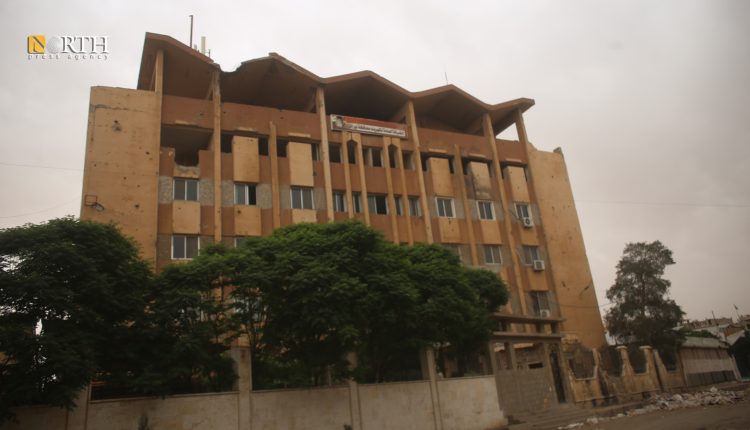Major Theft and Sabotage Strike Syria’s Deir ez-Zor Public Electricity Company
By Kardo Roj
DEIR EZZOR, Syria (North Press) – Unknown assailants carried out a large-scale theft and act of sabotage targeting the General Electricity Company in Deir ez-Zor on Wednesday, causing severe damage to the public facility and exacerbating service disruptions in the region, local sources told North Press.
According to a correspondent on the ground, the attack occurred in the Tala’i area, near the youth housing zone in the city, where assailants looted approximately 1.5 kilometers of aluminum wiring—estimated to weigh around 2.25 tons—and intentionally destroyed key infrastructure.
Witnesses at the scene reported that the perpetrators fired directly at ceramic electrical insulators during the raid, shattering them completely and rendering key systems inoperable. Shattered components were found strewn across the premises of the electricity company.
The latest act of vandalism highlights ongoing challenges facing public infrastructure in Deir ez-Zor, a region long marred by instability and contested control. While no group has claimed responsibility, the incident adds to a pattern of thefts and sabotage targeting essential services in Syria’s east, often linked to the security vacuum created by competing armed groups and fragile governance structures.
Although Deir ez-Zor city remains under government control, areas surrounding it—particularly in the countryside to the east—have seen intermittent unrest, including attacks by suspected ISIS remnants and other unidentified armed elements. This has put increasing strain on public institutions already suffering from years of war, sanctions, and administrative neglect.
The extent of the damage to the General Electricity Company underscores the vulnerability of critical infrastructure, which remains ill-equipped to withstand recurring security threats and looting. The loss of wiring and destruction of electrical systems could take weeks to repair, potentially leaving parts of the city with reduced or disrupted electricity access.
This incident is not isolated. In multiple regions across Syria, public infrastructure—including power stations, water networks, and schools—has been subject to repeated attacks, theft, and misuse. These acts contribute to the degradation of services that are essential for local recovery and civilian life, particularly in areas affected by the protracted conflict.
While the Autonomous Administration of North and East Syria (AANES) has managed to maintain relative stability and protect public services in areas under its administration, such as eastern Deir ez-Zor, this contrasts with persistent challenges in regime-held and contested zones. The Syrian Democratic Forces (SDF), in cooperation with local security bodies, continue to implement security operations aimed at countering smuggling, sabotage, and ISIS activity in adjacent regions, with some success in limiting similar incidents in AANES areas.
As Syria’s recovery remains stalled, experts stress the importance of integrated security and reconstruction frameworks to prevent further degradation of essential services. The sabotage of a key electricity facility in Deir ez-Zor serves as a reminder that without stable governance and secure control, infrastructure remains at risk from both criminal and politically motivated actors.
The absence of immediate accountability for the latest attack underscores a broader climate of impunity. Local authorities have yet to identify the group behind the sabotage, and no arrests have been reported at the time of publication.
Looking ahead, restoring damaged services will require not only technical repair but also renewed focus on securing vital infrastructure—particularly in areas where centralized governance is weak or contested. The incident also underscores the broader regional need for international and local cooperation to stabilize essential public services and protect civilians from the cascading consequences of infrastructure collapse.

